Features
A CHEF IN LOVE – Part 37
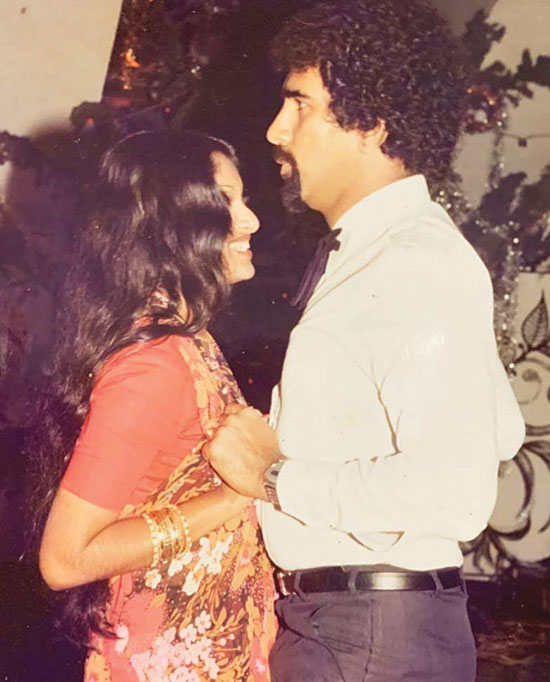
CONFESSIONS OF A GLOBAL GYPSY
By Dr. Chandana (Chandi) Jayawardena DPhil
President – Chandi J. Associates Inc. Consulting, Canada
Founder & Administrator – Global Hospitality Forum
chandij@sympatico.ca
A Romantic Ushering of 1978
Hotel Ceysands enjoyed a 100% room occupancy on December 31, 1977, and as the Executive Chef and the Food & Beverage Manager of the hotel, it was a very busy day for me. I enjoyed every minute I spent leading my teams to deliver an ambitious 133-item buffet and champagne service for the New Year’s Eve dinner dance. My partner for the dance, the hotel General Manager’s teenage daughter, reminded me a few times, not to be late ushering in the new year, 1978 with her. She seemed anxious to tell me something special by midnight. She was worried that I was still in my chef uniform carving meats for late comer guests at 11:00 pm.
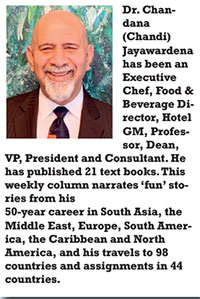 Shani was relieved to see me changed into a suit just before midnight. That was our very first dance. Every time we partnered to dance over the next 16 years at New Year’s Eve dances at different hotels in different countries, we laughed at how nervous we were on that memorable New Year’s Eve dance ushering 1978. Also, it was because her parents watched us like hawks. At midnight we managed to escape from their view to a less visible corner of the dance floor. We then declared our deep love for each other.
Shani was relieved to see me changed into a suit just before midnight. That was our very first dance. Every time we partnered to dance over the next 16 years at New Year’s Eve dances at different hotels in different countries, we laughed at how nervous we were on that memorable New Year’s Eve dance ushering 1978. Also, it was because her parents watched us like hawks. At midnight we managed to escape from their view to a less visible corner of the dance floor. We then declared our deep love for each other.
Meetings and Partings
The entire management team of the hotel met for all three meals everyday towards the end of each meal service to guests. A table for ten was arranged for us. Seven managers and two or three manager’s wives joined the executive table with Shani. We hardly had any formal management team meetings but used the meal table to talk about urgent matters. It was like one big family. From early 1978, Shani always kept the seat next to her strictly reserved for me.
I worked the whole day from morning till night almost every day during the tourist season. After lunch service, I relaxed a little by going for speedboat rides, playing some tennis, walking on the beach or playing cards with Shani and her mother. That tourist season was memorable in many ways. Towards the end of the season, I was saddened to hear that Shani and her mother would be away for nearly six months from April, 1978. They departed on a European trip visiting family and friends, mainly in England, West Germany and Austria.
During the tourist off season, the hotel occupancy came down drastically. Walkers Tours arranged a familiarising tour in Europe for the General Manager – Captain D. A Wickramasinghe (Wicks) and the Hotel Manager – Alan Silva. They planned to be away for two months. Terrence Hopman (Hoppy) who was the Executive Chef before me, returned after six months of sick leave. Hoppy and I were promoted to Assistant Managers. I continued to manage kitchens, restaurants, bars and stores. Hoppy was in charge of the other operational areas – front office, house-keeping, laundry etc. Soon after that, Hoppy and I were appointed to be Acting General Managers in charge of the hotel for two months.
Two Acting GMs
Those two months were filled with a lot of fun, some new learning experiences and a couple of mistakes as well. Hoppy and I shared one office and we did our inspection tours together. We were a perfect team. At times, I over did some pranks that angered Hoppy. However, I was quickly forgiven and we became friends 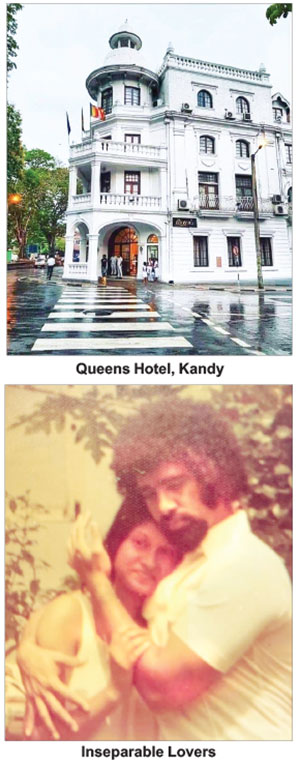 again. Those days during the tourist off season with very low occupancy were boring and we had to entertain ourselves somehow.
again. Those days during the tourist off season with very low occupancy were boring and we had to entertain ourselves somehow.
Captain Wicks was a good delegater. He entrusted Hoppy and I to manage several special projects while he was away. We were given many assignments. Most of our time was spent preparing a detailed salary scale for all jobs, drawing up complete lists of all supplies for the whole year, developing purchasing specifications for all small operating equipment plus coordinating maintenance projects. Having done all that work, I learnt some new skills. Gradually I became confident and convinced that I was now fully prepared to become a hotel manager.
One day, Samaranayake (Sam) took Hoppy and I on a tour of the boats and maintenance areas. He briefed us as to how he intended doing major repairs to the hotel pontoon which had a carrying capacity of 60 passengers. Having spent his entire career in the Navy and recently retired with the rank of Master Chief, Sam was very knowledgeable about such projects. Seven years later when I became the General Manager of the 260-room, 40-acre Habarana Hotel Complex (The Village, The Lodge and Keells Farm), Sam worked on my team as the Maintenance Manager of one of the hotels. Sam was a very loyal team member.
At the end of our tour, we sat on the docked pontoon to enjoy a beautiful sunset. Hoppy reminded me that the hotel had 0% occupancy that evening. “Let’s have a drink on the pontoon”, Sam suggested. I said, “OK. Good idea. I will ask the kitchen to make some devilled beef and spicy chicken wings for our bites.” I have a full bottle of rum and a half bottle of brandy in my apartment. I will ask a room boy to bring those to the pontoon.” Hoppy made a contribution to a boring evening that turned into a “fun-filled” booze party.
So far it was good. Then came the wrong decision when Sam said. “Let’s see who can drink most of the rum and brandy and still stand straight.” The moment Hoppy and I accepted that challenge, Sam threw the tops of the two bottles into a nearby garbage can. Around 10:00 pm we had finished all of the rum and brandy. When we tried to stand up straight both Hoppy and I couldn’t do it. The cool breeze of the Bentota river and the uneven floor of the docked pontoon were not helpful. That evening I learnt two lessons. Never get drunk at your workplace and never accept a challenge to drink from a sailor!
Our next project was a sober and religious act. As the Acting General Managers, Hoppy and I encouraged the employees to build a small but unique Vesak pandal on the river. We built seven floating structures in the shape of lotus flowers with Prince Siddhartha walking on them. During the low season, it was important to keep the employees motivated with exciting projects. This initiative was also well supported by the local residents who were predominantly Buddhists.
An Opportunity at Queens Hotel
In spite of my playful nature, since I was 20 years old, I was very responsible during the number of acting periods as Manager/General Manager at three hotels (Havelock Tourinn, Coral Gardens Hotel and Hotel Ceysands). That experience gave me the confidence needed to aim to be become a Hotel Manager. I was hoping to get a promotion within John Keells group, but there was no opening on the horizon yet.
One day, I saw a large newspaper advertisement for the post of Manager of Queens Hotel, Kandy with a good salary scale between Rs. 1,750 and Rs. 2,250. They also advertised the post of Executive Chef. Queens Hotel in 1978 was managed by the government owned Ceylon Hotels Corporation (CHC). Although leaving John Keells within one year of service to join CHS was not wise, I applied for the post of Manager of Queens Hotel any way. I had two goals for that action. I wanted to get some experience doing a hotel manager interview and to also send a signal to my employer that I was ready for a promotion.
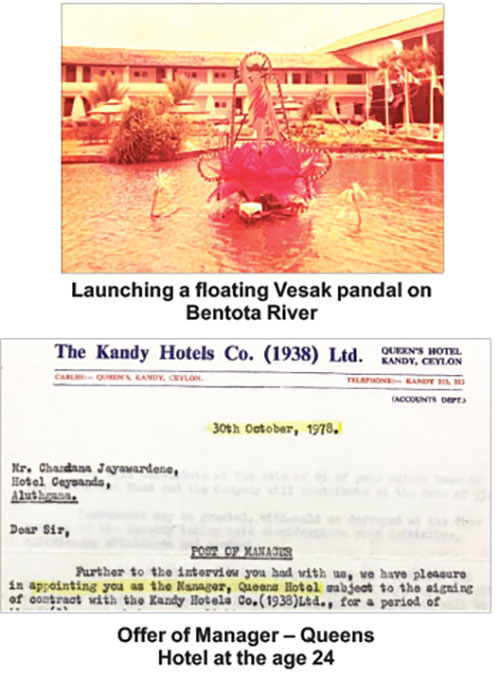 The Queens Hotel situated in the heart of Kandy and parts of the building had a rich history of nearly 200 years. When the Kingdom of Kandy finally fell into the hands of the British invaders in 1815, this famous building was converted into a mansion for the British Governor of Ceylon. In 1840 it had become Stainton Hotel/Hostel and eventually in 1869 had become Queens Hotel. It had a similar history to Mount Lavinia Hotel and a large team of unionized employees similar to Coral Gardens Hotel. I thought that my experience in those two legendary hotels made me a good candidate for the position.
The Queens Hotel situated in the heart of Kandy and parts of the building had a rich history of nearly 200 years. When the Kingdom of Kandy finally fell into the hands of the British invaders in 1815, this famous building was converted into a mansion for the British Governor of Ceylon. In 1840 it had become Stainton Hotel/Hostel and eventually in 1869 had become Queens Hotel. It had a similar history to Mount Lavinia Hotel and a large team of unionized employees similar to Coral Gardens Hotel. I thought that my experience in those two legendary hotels made me a good candidate for the position.
A Strange Interview
Around late October in 1978, I was called for an interview by the owners of Queens Hotel. The interview was held in Colombo at the CHC head office. When I arrived for the interview, I was surprised to see 14 other candidates for the Hotel Manager post had all been called at the same time. Although I did not have very much experience with interviews, common sense told me that it was a mistake, as there was no confidentiality for the candidates. As I knew all of the short-listed candidates, I commenced talking with them.
I was the most junior and youngest person among those 15 candidates. Some of them were many years my senior from the Ceylon Hotel School including a former lecturer of mine, who always resented my pranks and guts. Most of them were hotel managers of properties less prominent than the Queens Hotel. They looked surprised that I was called for an interview and competing with them. I felt that I had no chance in outperforming them but nevertheless, I wanted to go through the interview just for the experience. My plan was to finish the interview and rush back to Hotel Ceysands by mid-afternoon to prepare for the evening barbecue. After waiting two, long hours in the waiting room, I observed that only a handful were called into the boardroom where the interviews were held.
At that point, I went to the secretary who was seated outside the boardroom and in charge of calling the next candidate. When I checked where my name was on the list, I realized that I was number 15. I would be called last! “Miss, I did not budget six hours to wait here for an interview. I must get back to Bentota to work this afternoon. Please remove my application. Good bye!” I told her firmly. She was concerned. “I am very sorry to hear that, please don’t leave. I will call you next.” Immediately she changed the order.
Five minutes later I was called into a smoke-filled boardroom where seven older gentlemen were seated around the board table. I knew of a few of them. They were board members of two organizations – Kandy Hotels Co. Ltd., and CHC. As I was there mainly for the experience and had no chance of competing with all the other mature candidates, I was strangely relaxed and not nervous at all.
After a series of the usual questions about my experience and current duties, the Chairman of the selection board asked me an important question. “What is the salary you have in mind, if you were selected as the Manager of Queens Hotel?” he asked. Without batting an eyelid, I said, “Rs 2,250.” There was total silence among the seven distinguished gentlemen.
After a lengthy pause, the Chairman of the interview panel asked, “Do you realize that what you are seeking is the highest point on the scale?” When I said ‘Yes”, I was asked to justify why I should be paid at the highest level on the salary scale. I had to think quickly to give an intelligent answer with a justifiable rationale.
“I see that you are also looking to recruit an Executive Chef. The average guest stay at Queens is two days and most of the guests are on a full-board or half-board meal plan, I showed that I have done my research. Therefore, Queens Hotel requires only four good rotating menus. If you hire me, you won’t need to recruit an Executive Chef. As the Manager of the hotel, I would be happy to supervise the kitchens. With that the company will save Rs. 1,200”. When I made that remark, there weren’t any more questions from the panel. After a quick round of firm handshakes, I left.
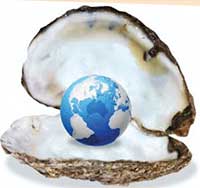
Creative Negotiations
On my way to Bentota I was convinced that I would never hear from that board, as I felt that I had been too arrogant at the interview. A few hours after I had returned to Hotel Ceysands, I received a telegram which read: “Congratulations! You are selected as the Manager of Queens Hotel. Please confirm a date to commence at your earliest.” A couple of days later, I received the contract letter confirming my salary of Rs. 2,000. That was an excellent salary in 1978. I was only 24 years old and ready to negotiate with John Keells Group.
That evening I broke the news to Captain Wicks. He was shocked and said, “That’s a very good job, but we cannot let you go.” I smiled and replied, “Captain, I will stay if you can match the position and the salary.” Next day early in the morning he left for John Keells head office and came back in the evening with an offer. John Keells had decided to promote me to the Manager of Hotel Swanee with a salary of Rs. 2,000 within the next three months. There was one condition – until a successor was recruited, I would overlook the Hotel Ceysands kitchens until the end of the tourist season on 31st March, 1979, while managing Hotel Swanee. Of course, I agreed. I liked the challenge of doing two jobs concurrently, something I eventually did for most parts of my long career in hospitality.
A Proposal for the Future
When Shani returned from her European tour, I was surprised that she had learnt to speak German and did her first job when in London. She was pleased that I had decided to be the Manager of nearby Hotel Swanee instead of Queens Hotel in Kandy. In spite of a busy six months, we spent without seeing each other, we felt that our souls have gotten closer than ever before. We decided to take our love affair to the next level.
With some courage I approached my boss, Captain Wicks and asked for his daughter’s hand in marriage. He was speechless for a few minutes, and then said, “Chandana, Shani just turned 18, and is too young to get married. She is our only child. I need to consult my wife.” After some further negotiations we agreed that Shani and I will get engaged in 1979 and marry in early 1980 when Shani is 19 years old.
Features
Development must mean human development
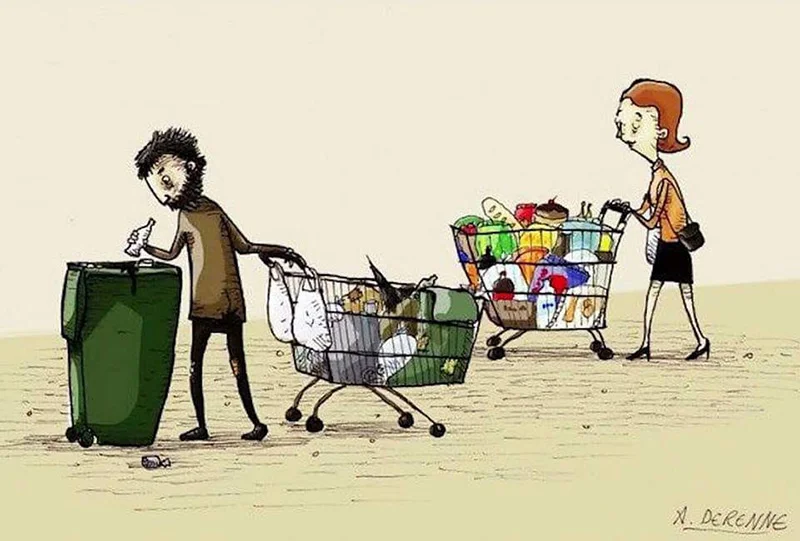
Neo-liberal economists assess economic development using parameters like GDP growth, inflation rate, interest rates, debt/GDP ratio and such and recommend measures to improve these expecting a resultant improvement in poverty rates, employment and household income, but this seldom happens as revealed by increasing inequality, decline in real incomes, malnutrition and school dropouts. Increased GDP doesn’t always translate into improved living standards or reduced poverty if benefits aren’t shared.
Quality of life has to be measured in terms of health, education, morals, satisfying employment and cultural activity. Further the society and environment of humans must be conducive for achieving a satisfactory quality of life. Present development models designed to fit the global neoliberalism focus on the development of the economy often at the expense of poor lives, labour, environment, morals and culture.
Human Development
Development must mean human development because true progress focuses on expanding people’s freedoms, capabilities (health, education, skills), and choices, rather than just economic growth (GDP). It’s a people-centered process that ensures individuals can lead fulfilling, productive lives, requiring inclusive policies, social equity, environmental stewardship, and empowerment for meaningful participation in society, moving beyond mere income increases to holistic well-being and human potential. True development addresses social, cultural, political, and environmental aspects alongside economic progress for sustainable well-being. Development, at its core, is about the expansion of human potential and rights, ensuring everyone has a chance to achieve their full potential.
It’s a transformative process that prioritizes people, their freedoms, and their ability to shape their own lives, making it a fundamental human right and the true measure of societal progress. Investing in education, healthcare, and culture has a powerful multiplier effect on families and societies
If Sri Lanka is taken as an example, over the 70 years since independence economic, social, health and education disparity between the rich and the poor has increased. Poverty rate at present is 24%, malnutrition is hovering around 15%, school dropout rates are alarmingly high, environment and climate vulnerability as experienced recently is frightening, regarding morals less spoken the better, and debt pressure is uncontrollable despite IMF.
Global Scene
Global scene is no better with inequality rising even in countries like the US, Europe, except in China and Vietnam. Poverty rate in the US is 11% and in Europe 12%. In contrast, China and Vietnam, which are not wholly linked to the neo-liberal economic system, have poverty rates below 1% and 4%, respectively. India still has a substantial number below an income level of USD 3.65 per day amounting to about 40% though extreme poverty (income below USD 2.5 a day) has reduced to about 2%. The upper 10% in the countries with more than 10% poverty own more than 60% of the wealth. One may argue that poverty cannot be totally eliminated, however it needs only 0.3% of the global GDP to eradicate poverty of people living below an income level of USD 2.5 per day. The rich don’t seem to care about this sad situation.
Wealth inequality in Sri Lanka is severe, with recent UNDP reports (2023) placing it among the top five most unequal countries in Asia-Pacific, where the richest 1% own about 31% of wealth, while the poorest 50% own less than 4%; this concentration of assets, coupled with the recent economic crisis, exacerbates deep gaps between rich and poor. Income gaps are stark, with Colombo district seeing the richest group hold over 72% of household income, compared to lower-income areas. Despite easing inflation and reasonable GDP growth, food prices more than doubled between 2021 and 2024, contributing to elevated malnutrition and food insecurity and real wages remain below their 2019 levels.
These facts and figures clearly show that neo-liberal policies have failed in human development in Sri Lanka as well as all countries in the grip of neoliberalism. A quarter of the population is in decline in health, education, real income, employment, morals, culture and all other good aspects of living. On the other hand, in countries which are not bound by the neo-liberal global system poor people are not on the decline but are well incorporated in the inclusive system of governance. Martin Jacques a British journalist and author of When China Rules the World: The End of the Western World and the Birth of a New Global Order, has lauded the Chinese model for its economic success and argued that it represents a distinct, effective approach to governance.
Broad-based investment
Sourabh Gupta, a senior fellow at the Washington-based Institute for China-America Studies, has praised China’s governance model for its “broad-based” investment in people, including healthcare, education, and infrastructure. China’s governance model prioritizes stability and long-term policy continuity, positioning it as an adaptable and effective system in certain non-Western contexts. The model’s emphasis on performance-based governance, continuous public engagement through consultative mechanisms, and controlled media strategies presents a unique approach that aligns well with the developmental needs of some emerging economies (M Y Abesha, B F Kebede, 2024). Similarly praise for the Vietnamese system of government, often centers on its political stability, the success of its Đổi Mới (Renovation) economic reforms, and its ability to maintain rapid, sustained growth.
In the grip of neo-liberalism
It is not that the countries caught in the grip of neo-liberalism have not made special attempts to improve the lot of the poor and it is also true that there had been significant improvements but the gains are not stable, and are very much vulnerable to external vagaries such as Trump and his tariffs, climate disasters, etc. as recently observed in Sri Lanka where poverty jumped from 14% to 24%. This is the fault of the system we are caught in and not so much in the intentions or competence of governments. Having said that, the onus however, is on the rulers to try and develop alternate systems that address poverty and human development.
The greed dependent, consumerism driven, profit motivated neo-liberal systems focus on capital accumulation and expect benefits to trickle down to the poor, but as seen so often the amounts that trickle down are woefully inadequate to solve poverty. This is why the national poverty statistics show that the richest country in the world, the US has 11% poor people while China has almost none. This is despite continuous effort by the US government to solve and overcome the problem.
This predicament is common to all poor countries in the global south, they are all in the neo-liberal trap. Individual countries cannot escape even if they want to. If they attempt it what could happen could be seen when one looks around. Vietnam had to pay a heavy price to defeat two imperial powers and fortunately they had Ho Chi Minh which made all the difference. Iraq, Libya, Syria, Venezuela lost but their people may still harbour anti-imperial fervour and one day may rise up.
Need for new World Order
Instead of waiting for that day what has to be done, as I have repeatedly said in my earlier letters in these columns, is for the global south to join forces and develop a new world order based on an economic system that would emphasize on human development rather than GDP, which would have the capacity to face up to the might of imperialism. Together they would be a force that could fearlessly face up to the hegemony of the global north. The new world order must jettison the export led economic model and instead make self- sufficiency in each country the common goal. Instead of competition between these countries to produce for export to the global north, there should be cooperation to help each other to achieve self-sufficiency and human development. If countries of the global south become self-sufficient in essential needs neo-liberalism will be eradicated and human development would take precedence.
by N. A. de S. Amaratunga
Features
The Separation of Powers and the Independence of the Judiciary

Checks and Balances in the Present Constitution
Moreover, the recent ruling given by the Speaker in Parliament on January 9, 2026, on the Opposition Motion to appoint a Select Committee to review recent appointments made by the JSC to the Judiciary further buttresses the explicit recognition of the SOP and the independence of the Judiciary. The Speaker reiterated the commitment of Parliament to the doctrine of the SOP and refused the Motion on the basis inter alia that Parliament was not hierarchically superior to the Judiciary and cannot be permitted to control the judiciary by creating an oversight mechanism with regard to the JSC.
Professor G.L. Peiris (Prof. GLP) in a speech delivered on December 12, 2025 at the International Research Conference at the Faculty of Law, University of Colombo published in The Island of December 15, 2025 under the caption “Presidential authority in times of emergency – A contemporary appraisal” has critiqued the majority judgment of the Supreme Court of Sri Lanka in Ambika Sathkunanathan V. A.G. on the declaration of emergency by Ranil Wickremesinghe as Acting President on July17, 2022 in response to the Aragalaya. The majority held that Wickremasinghe had violated the Fundamental Rights of the people by a Declaration of a State of Emergency. The author was to attend this event but was unable to do so due to a professional commitment out of Colombo.
After citing authority from several foreign jurisdictions in support of his view of judicial deference to the Executive on matters relating to an Emergency, he advances as one of the grounds as to why the majority were wrong in the Sri Lankan context is that the predisposition to judicial deference is reinforced by a firmly entrenched constitutional norm – “a foundational principle of our public law is the vesting of judicial power not in the courts but in parliament, which exercises judicial power through the instrument of the courts. This is made explicit by Article 4(c) of the constitution which provides “the judicial power of the People shall be exercised by Parliament through courts, tribunals and institutions created and established, or recognised by the Constitution, or created and established by law, except in regard to matters relating to the privileges, immunities and powers of Parliament and of its members, wherein the judicial power of the People may be exercised directly by Parliament according to law” . Prof GLP opines that the majority judgment constitutes “judicial overreach which has many undesirable consequences” including “traducing constitutional traditions; subverting the specific model of separation of powers reflected in our Constitution”.
Prof. GLP, is in effect advancing the view that the Sri Lankan Courts in the present constitutional framework of the Second Republican Constitution 1978 are subservient to the Executive or Parliament.
This view of Prof. GLP is with respect, wrong on both constitutional principle and policy. There are no constitutional restraints on the judicial review of executive action in relation to declarations of emergency. Self-imposed judicial restraint may well constitute an abdication of judicial responsibility.
Unlike the Independence Constitution where a Separation of Powers (SOP) was found by judicial interpretation with the concomitant judicial power to even strike down post enacted legislation, the 1st Republican Constitution of 1972 explicitly did away with the concept of an SOP and instead whilst vesting sovereignty in the people, nevertheless made the National State Assembly the supreme instrument of state power exercising the Executive, Legislative and Judicial power of the people (vide Article 5). Resultantly the judicial review of enacted legislation was expressly done away with and instead pre-enactment review of a Bill tabled in Parliament by a Constitutional Court was provided for.
Indisputably, this fundamental departure introduced by the First Republican Constitution was a direct response to the Queen V. Liyanage and the other judicial power cases where the Courts expressly recognised an SOP and the jurisdiction to even review the constitutionality of post enacted legislation.
But this doctrine of the abolishing of the SOP was subsequently abandoned, and one of the significant and welcome departures introduced by the Second Republican Constitution of 1978 was the explicit reintroduction into our constitutional framework of the principle of an SOP. This is made explicit by Articles 3 and 4 of the Constitution which vests Sovereignty in the people but proceeds to delineate how that sovereignty is exercised in terms of the trichotomy of the Executive, Legislative and Judicial powers and the further recognition of franchise and Fundamental Rights as also integral components of the sovereignty of the people.
Although the twin principles introduced in 1972 of a constitutional bar on the post-enactment review of legislation was retained together with the pre-enactment review of legislation in the present 1978 Constitution, nevertheless the reintroduction of the SOP which guarantees the independence of the Judiciary is a fundamental feature of the present Constitution.
Although Article 4(c) of the present Constitution does state that “the judicial power of the People shall be exercised by Parliament through courts … recognised by the Constitution … except in regard to matters relating to the privileges, immunities and powers of Parliament and of its Members, wherein the judicial power of the People may be exercised directly by Parliament according to law”, nevertheless there is a cursus curiae (practice of the court) of judicial authority by the Sri Lankan superior Courts that have recognised both the concepts of the SOP and the independence of the Judiciary from Executive or Legislative encroachment.
Leading cases which have recognized an SOP include Premachandra V. Monty Jayawickrema (1994) 2 SLR 90 (SC) and the Supreme Court Determination on the 19th Amendment to the Constitution (2002) in which the author appeared as Junior Counsel to the late Deshamanya H.L. de Silva P.C. The Supreme Court has recognised that the independence of the Judiciary is an intrinsic component of the present Constitution in several cases including the Court’s Determination on the Industrial Disputes Act (Special Provisions) Bill 2022. In fact, a more explicit pronouncement was made in Hewamanne V. De Silva where the Supreme Court held that judicial power vested solely and exclusively in the Judiciary (1983) 1 SLR 1 at 20.
Moreover, the explicit vesting in the Supreme Court of Sri Lanka under Articles 125 and 126 of the exclusive jurisdiction to interpret the Constitution and in respect of Fundamental Rights underscores the preeminent role of the Judiciary in our constitutional framework. Foundational principle of the present Constitution as recognized by our Courts include the Rule of Law, power is a trust, and there are no unfettered discretion in public law. Regrettably, Prof. GLP assails these welcome advances made in our public law jurisprudence.
In our constitutional setting of checks and balances and judicial oversight it is the function of the Judiciary to review the legality of Executive action, including matters relating to the declaration of a State of Emergency and Emergency Regulations. The duty of interpreting an Act of Parliament is a function of Courts and not of Parliament (Court of Appeal in C.W.C. V. Superintendent, Beragala Estates 76 NLR 1). The author cited this decision to the Supreme Court in challenging the Inland Revenue Bill introduced by the late Mangala Samaraweera. That Court reiterated this principle and agreeing with the author, ordered a referendum on a particular Clause.
Even in the pre-independence period up to 1948, when vide powers were conferred on the Governor who exercised Executive authority, the Courts have unequivocally reviewed the legality of executive action as manifest by the significant decision of the Supreme Court in 1937 in “In Re. Mark Anthony Lester Bracegirdle“, where the executive act of the Governor of arrest and deportation of Bracegirdle to Australia was reviewed by the Supreme Court and quashed. This decision was a striking assertion of judicial independence and is the first significant judicial review of executive action.
Moreover, the recent ruling given by the Speaker in Parliament on January 9, 2026, on the Opposition Motion to appoint a Select Committee to review recent appointments made by the JSC to the Judiciary further buttresses the explicit recognition of the SOP and the independence of the Judiciary. The Speaker reiterated the commitment of Parliament to the doctrine of the SOP and refused the Motion on the basis inter alia that Parliament was not hierarchically superior to the Judiciary and cannot be permitted to control the judiciary by creating an oversight mechanism with regard to the JSC.
(The author is a President’s Counsel and a Professor of Law)
By Nigel Hatch1
Features
Trump’s Interregnum
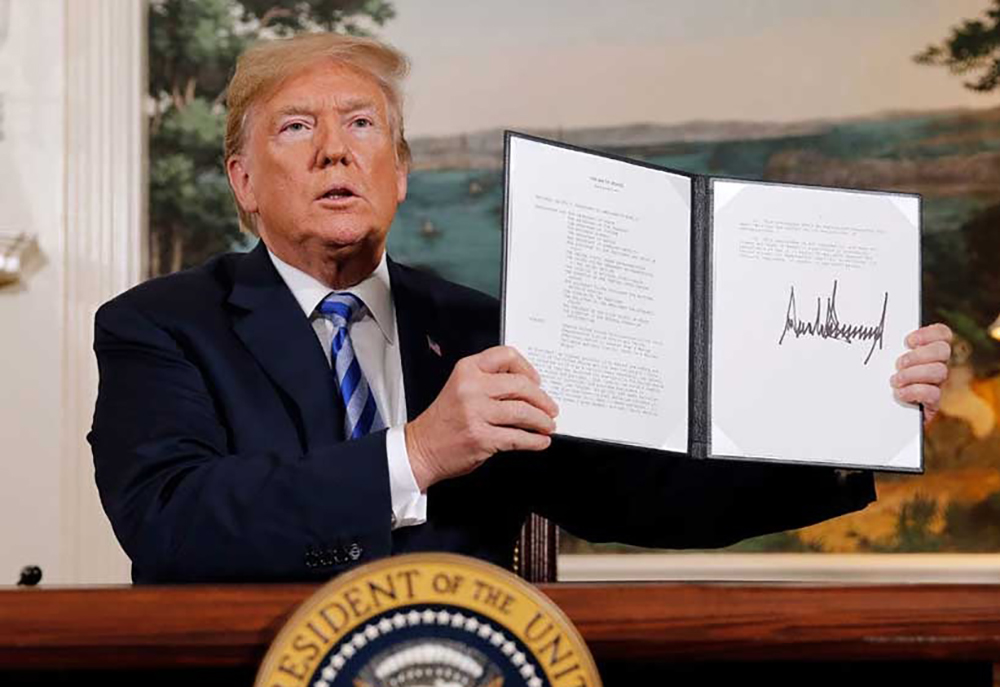
Trump is full of surprises; he is both leader and entertainer. Nearly nine hours into a long flight, a journey that had to U-turn over technical issues and embark on a new flight, Trump came straight to the Davos stage and spoke for nearly two hours without a sip of water. What he spoke about in Davos is another issue, but the way he stands and talks is unique in this 79-year-old man who is defining the world for the worse. Now Trump comes up with the Board of Peace, a ticket to membership that demands a one-billion-dollar entrance fee for permanent participation. It works, for how long nobody knows, but as long as Trump is there it might. Look at how many Muslim-majority and wealthy countries accepted: Saudi Arabia, Turkey, Egypt, Jordan, Qatar, Pakistan, Indonesia, and the United Arab Emirates are ready to be on board. Around 25–30 countries reportedly have already expressed the willingness to join.
The most interesting question, and one rarely asked by those who speak about Donald J. Trump, is how much he has earned during the first year of his second term. Liberal Democrats, authoritarian socialists, non-aligned misled-path walkers hail and hate him, but few look at the financial outcome of his politics. His wealth has increased by about three billion dollars, largely due to the crypto economy, which is why he pardoned the founder of Binance, the China-born Changpeng Zhao. “To be rich like hell,” is what Trump wanted. To fault line liberal democracy, Trump is the perfect example. What Trump is doing — dismantling the old façade of liberal democracy at the very moment it can no longer survive — is, in a way, a greater contribution to the West. But I still respect the West, because the West still has a handful of genuine scholars who do not dare to look in the mirror and accept the havoc their leaders created in the name of humanity.
Democracy in the Arab world was dismantled by the West. You may be surprised, but that is the fact. Elizabeth Thompson of American University, in her book How the West Stole Democracy from the Arabs, meticulously details how democracy was stolen from the Arabs. “No ruler, no matter how exalted, stood above the will of the nation,” she quotes Arab constitutional writing, adding that “the people are the source of all authority.” These are not the words of European revolutionaries, nor of post-war liberal philosophers; they were spoken, written and enacted in Syria in 1919–1920 by Arab parliamentarians, Islamic reformers and constitutionalists who believed democracy to be a universal right, not a Western possession. Members of the Syrian Arab Congress in Damascus, the elected assembly that drafted a democratic constitution declaring popular sovereignty — were dissolved by French colonial forces. That was the past; now, with the Board of Peace, the old remnants return in a new form.
Trump got one thing very clear among many others: Western liberal ideology is nothing but sophisticated doublespeak dressed in various forms. They go to West Asia, which they named the Middle East, and bomb Arabs; then they go to Myanmar and other places to protect Muslims from Buddhists. They go to Africa to “contribute” to livelihoods, while generations of people were ripped from their homeland, taken as slaves and sold.
How can Gramsci, whose 135th birth anniversary fell this week on 22 January, help us escape the present social-political quagmire? Gramsci was writing in prison under Mussolini’s fascist regime. He produced a body of work that is neither a manifesto nor a programme, but a theory of power that understands domination not only as coercion but as culture, civil society and the way people perceive their world. In the Prison Notebooks he wrote, “The crisis consists precisely in the fact that the old world is dying and the new cannot be born; in this interregnum a great variety of morbid phenomena appear.” This is not a metaphor. Gramsci was identifying the structural limbo that occurs when foundational certainties collapse but no viable alternative has yet emerged.
The relevance of this insight today cannot be overstated. We are living through overlapping crises: environmental collapse, fragmentation of political consensus, erosion of trust in institutions, the acceleration of automation and algorithmic governance that replaces judgment with calculation, and the rise of leaders who treat geopolitics as purely transactional. Slavoj Žižek, in his column last year, reminded us that the crisis is not temporary. The assumption that history’s forward momentum will automatically yield a better future is a dangerous delusion. Instead, the present is a battlefield where what we thought would be the new may itself contain the seeds of degeneration. Trump’s Board of Peace, with its one-billion-dollar gatekeeping model, embodies this condition: it claims to address global violence yet operates on transactional logic, prioritizing wealth over justice and promising reconstruction without clear mechanisms of accountability or inclusion beyond those with money.
Gramsci’s critique helps us see this for what it is: not a corrective to global disorder, but a reenactment of elite domination under a new mechanism. Gramsci did not believe domination could be maintained by force alone; he argued that in advanced societies power rests on gaining “the consent and the active participation of the great masses,” and that domination is sustained by “the intellectual and moral leadership” that turns the ruling class’s values into common sense. It is not coercion alone that sustains capitalism, but ideological consensus embedded in everyday institutions — family, education, media — that make the existing order appear normal and inevitable. Trump’s Board of Peace plays directly into this mode: styled as a peace-building institution, it gains legitimacy through performance and symbolic endorsement by diverse member states, while the deeper structures of inequality and global power imbalance remain untouched.
Worse, the Board’s structure, with contributions determining permanence, mimics the logic of a marketplace for geopolitical influence. It turns peace into a commodity, something to be purchased rather than fought for through sustained collective action addressing the root causes of conflict. But this is exactly what today’s democracies are doing behind the scenes while preaching rules-based order on the stage. In Gramsci’s terms, this is transformismo — the absorption of dissent into frameworks that neutralize radical content and preserve the status quo under new branding.
If we are to extract a path out of this impasse, we must recognize that the current quagmire is more than political theatre or the result of a flawed leader. It arises from a deeper collapse of hegemonic frameworks that once allowed societies to function with coherence. The old liberal order, with its faith in institutions and incremental reform, has lost its capacity to command loyalty. The new order struggling to be born has not yet articulated a compelling vision that unifies disparate struggles — ecological, economic, racial, cultural — into a coherent project of emancipation rather than fragmentation.
To confront Trump’s phenomenon as a portal — as Žižek suggests, a threshold through which history may either proceed to annihilation or re-emerge in a radically different form — is to grasp Gramsci’s insistence that politics is a struggle for meaning and direction, not merely for offices or policies. A Gramscian approach would not waste energy on denunciation alone; it would engage in building counter-hegemony — alternative institutions, discourses, and practices that lay the groundwork for new popular consent. It would link ecological justice to economic democracy, it would affirm the agency of ordinary people rather than treating them as passive subjects, and it would reject the commodification of peace.
Gramsci’s maxim “pessimism of the intellect, optimism of the will” captures this attitude precisely: clear-eyed recognition of how deep and persistent the crisis is, coupled with an unflinching commitment to action. In an age where AI and algorithmic governance threaten to redefine humanity’s relation to decision-making, where legitimacy is increasingly measured by currency flows rather than human welfare, Gramsci offers not a simple answer but a framework to understand why the old certainties have crumbled and how the new might still be forged through collective effort. The problem is not the lack of theory or insight; it is the absence of a political subject capable of turning analysis into a sustained force for transformation. Without a new form of organized will, the interregnum will continue, and the world will remain trapped between the decay of the old and the absence of the new.
by Nilantha Ilangamuwa ✍️
-

 Business1 day ago
Business1 day agoComBank advances ForwardTogether agenda with event on sustainable business transformation
-
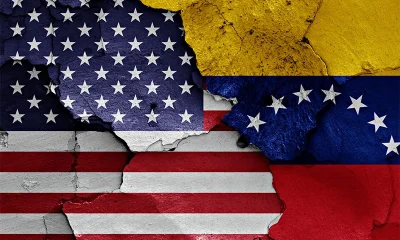
 Opinion6 days ago
Opinion6 days agoAmerican rulers’ hatred for Venezuela and its leaders
-

 Opinion4 days ago
Opinion4 days agoRemembering Cedric, who helped neutralise LTTE terrorism
-

 Business4 days ago
Business4 days agoCORALL Conservation Trust Fund – a historic first for SL
-
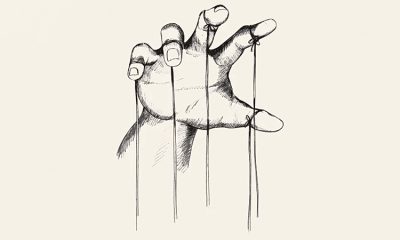
 Opinion3 days ago
Opinion3 days agoA puppet show?
-
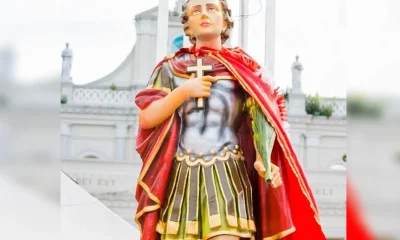
 Opinion6 days ago
Opinion6 days agoHistory of St. Sebastian’s National Shrine Kandana
-

 Opinion1 day ago
Opinion1 day agoConference “Microfinance and Credit Regulatory Authority Bill: Neither Here, Nor There”
-

 Features5 days ago
Features5 days agoThe middle-class money trap: Why looking rich keeps Sri Lankans poor













